Slip-and-fall accidents often happen without warning, usually by tripping over spills, ice, or unsecured rugs. There are scores of examples of how someone could fall and get hurt, with slipping on icy or wet surfaces ranking highest among the instances. Indiana courtrooms preside over many negligence cases that resulted in injury from a slip-and-fall incident.
Common reasons for slip-and-fall accidents
Slip-and-fall incidents are usually caused by the individual losing traction on the floor or ground. Wet floors, iced walkways, mud, or loose gravel could cause an individual to lose footing and fall. Using improper footwear or no footwear in wet conditions, such as mopping the floor or walking in the rain, could undermine friction and traction and cause a slip.
Falls result from people tripping over objects, such as an extension cord. Everything from misplaced furniture, tools and toys cluttering the floor may lead to falls. In addition to the clutter, broken railings may increase the risk of falling on uneven or damaged floors or steps. Handrails provide stability to the individual while navigating the terrain and create a safety hazard when not repaired and maintained.
Liability for slip-and-fall accidents
In a case where the individual that fell was not paying attention or behaving poorly, there may not be a liability issue. However, when someone else’s negligence leads to an injury, the negligent party might be liable for damages and medical expenses. So, if a homeowner creates a situation that- intentional or not- causes a slip-and-fall incident, the homeowner could be responsible for any slip-and-fall accident compensation.
Homeowners and business insurances have liability clauses that may cover claims of slip-and-fall incidents. The legal process might involve intense negotiations to arrive at a fair and reasonable settlement amount or court hearing.








